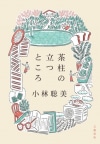Introduction
What Memes Connect Us To
By Hideo Kojima
“A world without books is unthinkable.”
This is what I wrote in the introduction to the original edition of this book, The Memes I Love. More than six years later, I still feel the same way, even though I have undergone big changes, as has the situation I find myself in.
In March 2014, we released Metal Gear Solid V: Ground Zeroes, and, in September 2015, Metal Gear Solid V: The Phantom Pain. Then in December of 2015, I re-established Kojima Productions as an independent studio. While I momentarily considered taking leave of game production to shoot small budget films and to write for a while, my desire to satisfy my fans and associates around the world quickly won out. So game production it was.
I rented a tiny ten-meter square office and literally circled the globe in a hurry to find the right production tools, engines, and people. My staff grew until I needed a new office and had to circle Tokyo in search of the right place. In the meantime, of course, we already had new games in production. There was never enough time for everything that needed to be done. Even still, there was one thing that I made sure never to neglect: my daily visit to a bookstore.
Every day, I would go to a bookstore, take different books in my hand, buy the ones that called to me, and lose myself in reading them. This is a habit and ritual that I have always kept up. It just doesn’t feel right unless I have a bunch of books in my bag, especially when I fly somewhere on business.
When I was a kid, my parents entrusted me with a copy of the housekey because they were often busy, and it was always my job to turn on the lights as soon as I got home. While alone, I would then open a book, the only thing that kept my feeling of loneliness and isolation from crushing me. After I lost my father at a young age and was left without a role model to emulate, books were also where I found grownups and teachers to guide me in life.
Reading books and watching movies is a kind of virtual experience but nonetheless an important kind of experience. Obviously, if you want to travel somewhere, nothing beats actually going there and becoming directly acquainted with the atmosphere of the place itself. Climbing a mountain is unquestionably superior to hearing someone talk about it. And yet, direct experience has its limits, which is what makes the virtual experiences offered by narrative media valuable. They allow you to go places you could never otherwise go—distant worlds, the past, the future—and become people of ethnicities or genders other than your own. And even though reading a book is something you do alone, you can share the story that unfolds for you in the process with countless people you have never met. In this way, you remain isolated and yet connected.
This feeling of connection, which I derived from books, saved me when I was a child and went on saving me. It’s what I hope to convey to you in this book.
The intermediaries for this connection are memes, a well-known concept put forth by the evolutionary biologist Richard Dawkins. Memes are the information such as culture, customs, and values that is passed on from generation to generation but that differ from the biological information carried by genes. I think it is fair to say that stories are one form of meme. They transmit culture by being told and read from one generation to the next. Just as genetic information is passed on through connections between one person and another, certain memes are passed on through the connection between a person and a narrative medium such as a book, movie, or song.
The world contains countless numbers of such media. Experiencing all of them is utterly impossible. That is why I consider the encounters I have in this limited life to be of deep significance. Encounters are serendipities that leap out of the blue. There’s just no telling when, how, or to what destiny they will link us. So I try to cherish the encounters that arise not when I’m waiting passively but when I’m acting and making decisions with intention. This applies just as much to encounters with people.
My habit of going to bookstores is related to this point because I visit them every day in order to create encounters. In bookstores, I—needless to say—come across all sorts of books. Some catch my attention, some call to me, others I simply pass by. And in the process of checking what sort of relationship each one bears to me, I learn how to discover encounters that are personally meaningful and to refine my power of aesthetic judgement.
Insofar as songs, books, and movies are created by people, you can’t expect all of them to be great. In fact, 90% are probably not so great. But among the remaining 10% can be found some incredible works of art. As a professional creator myself, I’m always thinking how I want to keep producing work that make it into that upper 10%. This is one of the main reasons that I cultivate and refine my ability to select books of that caliber.
Not that I’m doing anything all that special. I just go to a bookstore, buy a book that grabs me, and read it. If it happens to be one of the not so great books, I don’t let it bother me. Reading it was just one phase in the training that allows me pick out the good ones. The time spent on these tasks is never wasted because it serves the important role of linking me to the next encounter.
So as never to forget that time, I keep the receipt between the pages of most of the books in my personal library. That way, I can always check the date and time of purchase, and the name of the shop. This helps me recall not just the content of the book but what I was doing that day, from the time I set off for the bookstore, to being inside the bookstore, the place I read the book, and the feeling the book left me when I was done. Whatever kind of book it happened to be, whether it was boring or exciting, the memory of the time I spent with it is mine and mine alone, a special story just for me. Then I go to another bookstore, and repeat the process over, on a quest for one of the 10%.
After visiting a store daily for a while, the path I follow through it begins to take on a fixed pattern before I know it. Observation along an established course is more efficient, but it compromises the meaning and attraction of going to a bookstore in the first place. Because once your route is set in stone, you stop looking anywhere else. That’s why going to a bookstore you’re not yet used to or to a new bookstore, stirs up your thoughts and, in spite of the disorientation, makes the whole experience more interesting. The books on display might be the very same ones at your regular shop, but each of them reveals a fresh aspect depending on the size of the space, the location, and the arrangement. This is similar to the way that the meaning of words and phrases can change depending on the situation or context in which they’re used, or the way a person can develop an attractive quality after being incorporated into a new set of interpersonal relationships.
So, at the risk of repeating myself too many times, let me say again: I can’t stop going to bookstores. Only there can you find all the latest information gathered in one place. This was all the more true in the days before the internet and social media, but it’s still true today. Do a circuit through the aisles of a bookstore, and you’ll have a pretty good idea of what’s trending just about everywhere. Bookstores are, to this day, the whole world in miniature. For example, whether or not you have any interest in a particular NHK morning drama, spotting several kinds of books about it on the shelves tells you that the viewer ratings are probably pretty high, and a photo collection of an actor you’ve never heard of piled up in a stack is a sure sign that they must be popular. Cruise once through the sports, self-help, economics, business, and manga sections, and you’ll have a snapshot of the present moment.
It’s simply false as some people claim that you can acquire the same information online. Because information online is filtered, and you only see what you like and care about, whereas in a bookstore, even genres and fields you pay little attention to inevitably find their way into your field of view. Bookstores create contexts that simply don’t exist on the internet. Of course, people of more web-savvy generations will no doubt say that the internet has its own particular contexts, and there are probably encounters that emerge from those. I don’t mean to deny that offhand, but I’d still like to insist upon the special value of books and bookstores. I want to go to a bookstore, see books that I can actually touch surrounding me, walk around, gaze at the spines carefully lined up on the shelves and the stacked covers, pick books up and carry them to the cash register, have the cashier slot the receipt between the pages, and then slowly savor the reading of every line.
The point I’m making is not just an expression of the nostalgia of someone from an older generation. The act of choosing books and movies is no different than choosing people and as such has a certain universality. As I said earlier, sifting out the 10% of books that are good from the overwhelmingly huge number gathered at a bookstore requires discipline and training, day in and day out. You can’t just do a search with the keywords, “new book, novel, good.” Both the time and means at your disposal for finding a good one yourself are limited. You can look at the cover, read the comments and blurbs on the paper band wrapped around it, read the summary on the back and front, peruse the afterword and literary analysis inside, skim the text itself. On the basis of these scarce clues, you have to employ your own values and discernment to gauge the book’s quality.
The skills required are just the same as those you need to evaluate the people you work with, the proposals they make, the plans and projects you take on, and so on. All of these are just like a book before you’ve read it. You must make a call before you crack the cover. In the case of a book, if it’s dull you can just shrug it off, but if you guess wrong about a job you’re involved in, it could, in the worst case, turn out disastrously for everyone involved.
Not just choosing books but reading books can likewise help you steer clear of potentially tragic situations. For example, making a mistake on a real trip could cost you or someone else their life, whereas taking a fictional trip is perfectly safe. The fact that you can’t get hurt from virtual experiences might lead some people to conclude that they’re inferior to real experiences. But this is the wrong way to think about it. Contact with memes like books and films is a kind of bona fide experience that provides us with the wisdom and knowledge we need in our interactions with reality. Thus reality is in a feedback loop with the mundane action of choosing a book.
I’m grateful that my work is thought by many critics to have artistic merit and originality. I don’t doubt for a second that going to bookstores and choosing books is a big part of what makes that possible. Training my aesthetic judgement and my eye for quality work, allows me to form a unique perspective that results in works that no one else could have come up with.
Of course, discovering movies and books on the recommendation of others is also important, but you have to enter into the fictional world with your own outlook and sense of discernment. If a work someone praises turns out to be lame, that shouldn’t trouble you, because you judged it upon its merits according to your own taste. A work can’t just be interesting to you because someone else said so. That would be no different than retweeting someone’s opinion on Twitter. None of who you are is in the appraisal. No need to worry if you’re wrong or if your opinion disagrees with that of others. Just think how far discovering a great work on your own might take you. A work I consider great might be different than what you consider great, but that’s exactly as it should be. I suspect that this may be what I’m trying to communicate when I develop games, write, and blurb movies and books.
The essays in this volume cover only a tiny fraction of the books and movies that I chose on my own two legs, with my own eyes, and using my own head. This selection, no this context, is what formed me as a person and thus also my work. The memes they imbued me with have given me the energy I need to exist and to create.
None of these works have diminished in value at all since the original version of this book came out. So I give you the same memes one more time in this paperback edition, praying that they will connect us.
Translated from the Japanese by Eli K.P. William
-
2019年11月28日 掲載
※この記事の内容は掲載当時のものです
関連ニュース
-
コロナ禍で出会った男女の56日にわたる愛と悲劇を描いたサスペンス小説『56日間』試し読み
[試し読み](海外の小説・詩集/ミステリー・サスペンス・ハードボイルド)
2022/11/14 -
松岡修造はどうやって「折れない心」を手にしたのか 「弱かった自分」を明かす
[ニュース](タレント写真集/タレント本/宗教/エッセー・随筆)
2018/07/21 -
『騎士団長殺し』発売記念 女優の杏さんがお薦めする村上春樹作品は『日出る国の工場』
[ニュース/テレビ・ラジオで取り上げられた本](日本の小説・詩集)
2017/02/28 -
【手帖】有島武郎の再評価へ文学館が認知度調査を実施
[リリース](日本の小説・詩集)
2016/02/10 -
フラットな視点で近現代史の成功と失敗に学ぶ『日本近現代史講義』に注目集まる
[ニュース](日本史/タレント本/心理学/演劇・舞台)
2019/11/16


























